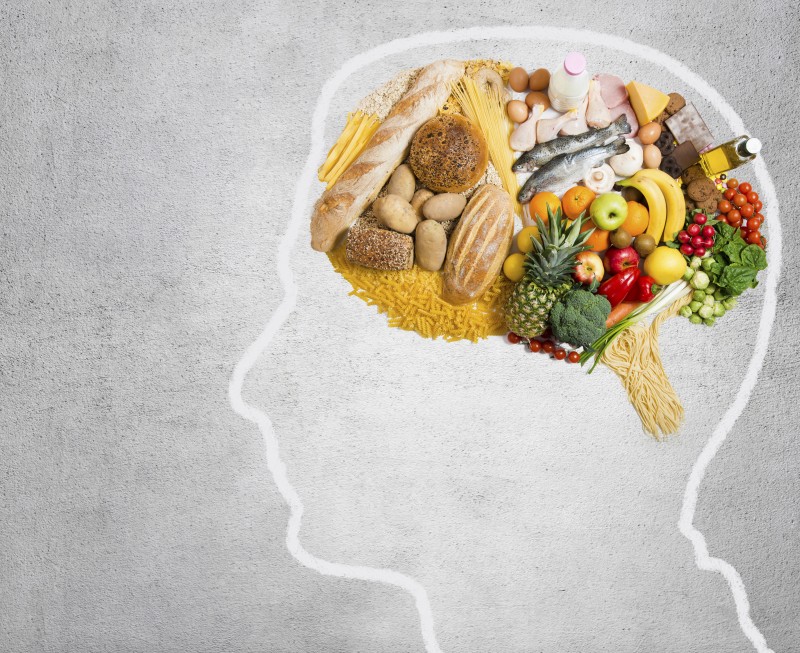
When most people set out to lose weight, they will either decrease the amount of food they eat, increase the amount of working out they do, or both. More specifically, adjusting how much you eat, or how much you workout, is an attempt to create a negative energy balance. Energy balance is a state of equilibrium between energy intake and energy expenditure, and thus, a negative energy balance is when energy intake (how much you eat) is less than energy expenditure (how much energy you use).
RELATED: The Fallacy of the Fat Burning Zone
While this whole concept of manipulating energy balance appears to be simple at first glance, anyone who has ever gone on a diet will tell you that it’s not. The body is both fascinating and stubborn at the same time. The components that contribute to energy balance are complicated, and sometimes working out more and/or eating less just doesn’t cut it when it comes to cutting the fat. So, let’s tackle some of the issues contributing to failed attempts at creating a negative energy balance.
Calculations Count
Many people, when they start wanting to manipulate energy balance, will first attempt to calculate how many calories they burn at rest (BMR, basic metabolic rate) or in total throughout the day (TDEE, total daily energy expenditure). It is important to note that BMR and TDEE are two equations that are not the same. BMR is the minimum number of calories your body needs to function, whereas, TDEE is the sum of all the calories your body burns over the course of 24 hours. TDEE includes things like your BMR, the calories you burn from exercise, the calories you burn from non-exercise physical activity, and the thermic effect of food. Knowing your TDEE and BMR can be very helpful, but the generic calculations for each can be slightly problematic since factors like muscle mass, body fat, hormones, and genetics are rarely factored into these calculations.
Energy Balance Overview
- Changes in energy stores: Energy intake - Energy Expenditure
- Energy Balance: Energy intake = Energy Expenditure
- Negative Energy Balance: Energy Intake < Energy Expenditure
A positive error of just 1% when using these calculations can result in a surplus of nearly 10,000 extra kcals a year, or approximately 2.8lbs1. While that's not too much, if the error in your calculations was to continue for 10 years, it would add up to a gain of almost 30 pounds! Luckily, if you are tracking your weight over time, you can prevent this from happening. But be wary of the consequences of incorrect calculations — and for those that don’t rely on calculations and listen to your hunger, you will be happy to know that feedback loops are in place to prevent you from continuously gaining weight (so long as you are listening to your body).
Small, long-term imbalances in energy balance are more devastating than large, short-term ones.
Short-term negative energy imbalances are created all throughout the day. Energy balance deficits occur from the moment you wake fasted in the morning, to periods between meals, to the time you jump into that weekend Warrior Dash at the last minute. While these are momentarily alterations in energy balance, these things are often inconsequential when it comes to creating an energy imbalance that can change your weight.
In terms of energy balance, the magnitude of daily imbalance, and the length of time the imbalances occur, really dictate whether you will be in a positive or negative energy balance that results in gaining or losing weight. This is one of the reasons why a huge cheat meal, or fasting before your 3 PM blood testing, isn’t going to be enough of an imbalance to cause you to gain or lose weight (outside of water). It is the long-term imbalances that contribute to alterations in energy reserves that really drive the changes in body weight. And rightly so, since gaining or losing a large amount of body weight has global metabolic consequences.
For example, if you are on a diet and start to lose muscle mass, the decrease in metabolically active muscle will decrease your metabolic rate and total energy expenditure. This will then likely alter your food intake since decreases in body size are often proportion to decreases in energy expenditure1. This means you will likely need to eat less.
In the grand scheme of things, small changes in energy balance in a single day are not really a big deal. Rather, it is the small imbalances over time that matter, since they change the amount of fat or muscle you have, thus changing your energy expenditure and food requirements.
From a dieting standpoint, this is important to recognize. It means you should not be so concerned about a single cheat meal. Instead, you should be focused on being consistent and precise with your diet each and every day.
Biology can be a b*tch.
If it wasn’t bad enough that dropping weight often results in decreases in metabolic rate, your body also works against your weight loss efforts by activating signaling pathways that contribute to increases in food intake. More specifically, as you drop weight, the mass of your fat cells decreases. That decrease subsequently drives decreases in the expression of leptin and insulin. Decreases in leptin are associated with increases in body weight and food consumption2-4; whereas, decreases in insulin prevent glucose uptake into cells and promote obesity (reviewed in5). The decrease in leptin and insulin’s action on the hypothalamus then induce neuropeptide Y and agouti-related protein to stimulate your need to eat, while preventing alpha-melanocyte stimulating hormone from binding the melanocortin receptor to prevent food intake1. Thus, when you drop weight, your brain works to make you increase your food intake and decrease your energy expenditure. It's really not a fun feedback loop.
So, how can you avoid this? Although tricky, there are things that can be done. First, avoid dramatic changes that quickly drop your body weight. With weight loss, focus on slowly decreasing your calorie intake and including necessary refeeds. Also, try to prevent pulling healthy fats from your diet and try to allow your body to spend a few weeks at a certain goal weight before continuing to drop your weight any lower. These things can be extremely helpful in preventing biological retaliation from your brain and body when dropping weight.
Wrapping It Up
At the end of the day, dieting can be frustrating, especially once you find out that your body is doing many things to work against you. However, it’s important to remember that your body is remarkably adaptable and by better understanding its responses to energy imbalances, you are one step closer to getting it onboard with your goals.
References
- Stipanuk, M.H. Biochemical and physiological aspects of human nutrition.
- De Vos, P., Saladin, R., Auwerx, J. & Staels, B. Induction of ob gene expression by corticosteroids is accompanied by body weight loss and reduced food intake. The Journal of biological chemistry 270, 15958-15961 (1995).
- Ferre, P. [Obesity, The ob gene product and control of adipose mass]. Diabete & metabolisme 21, 217-218 (1995).
- Takeda, S., Elefteriou, F. & Karsenty, G. Common endocrine control of body weight, reproduction, and bone mass. Annual review of nutrition 23, 403-411 (2003).
- Stricker, E. & Woods, S.C. Neurobiology of food and fluid intake, Edn. 2nd ed. (Kluwer Academic/Plenum Publishers, New York; 2004).











